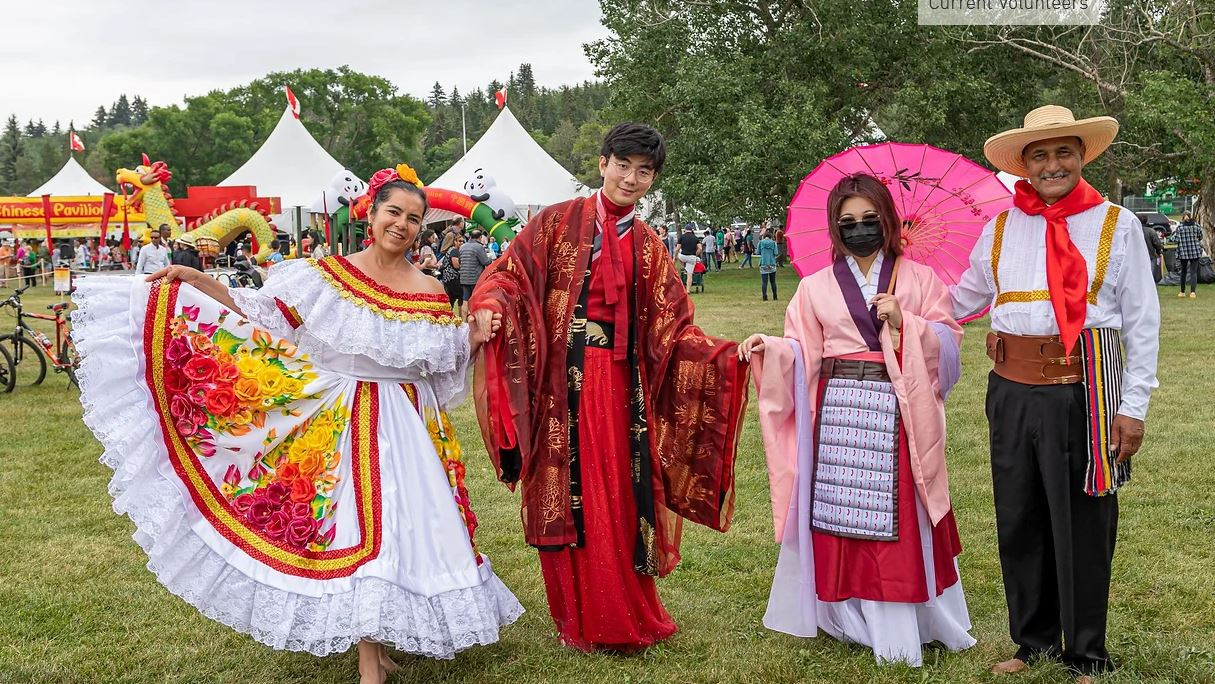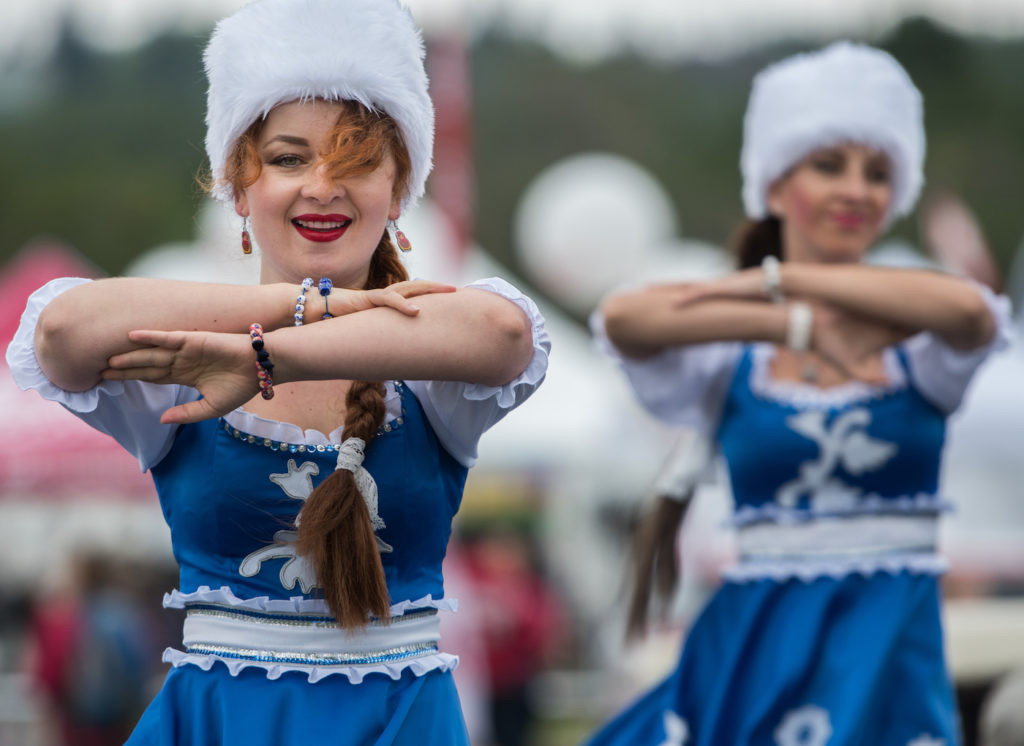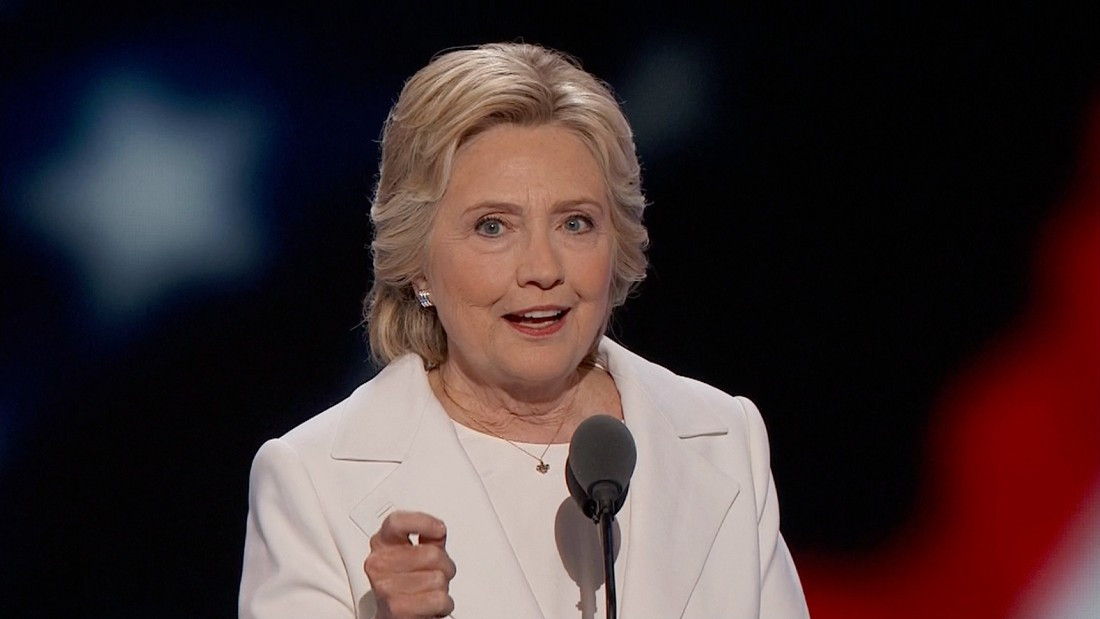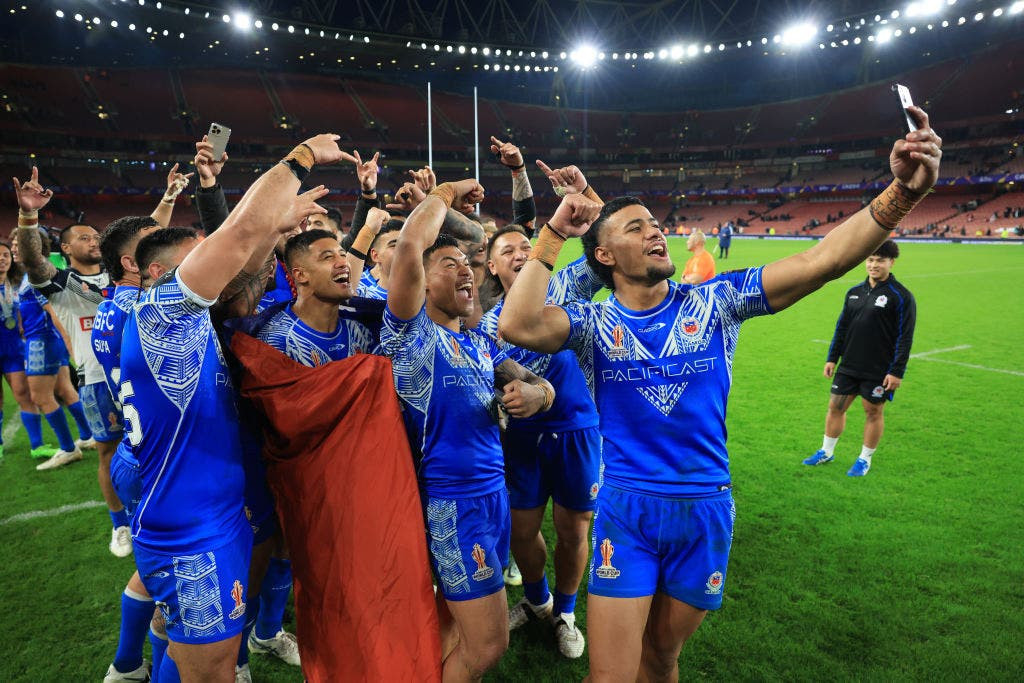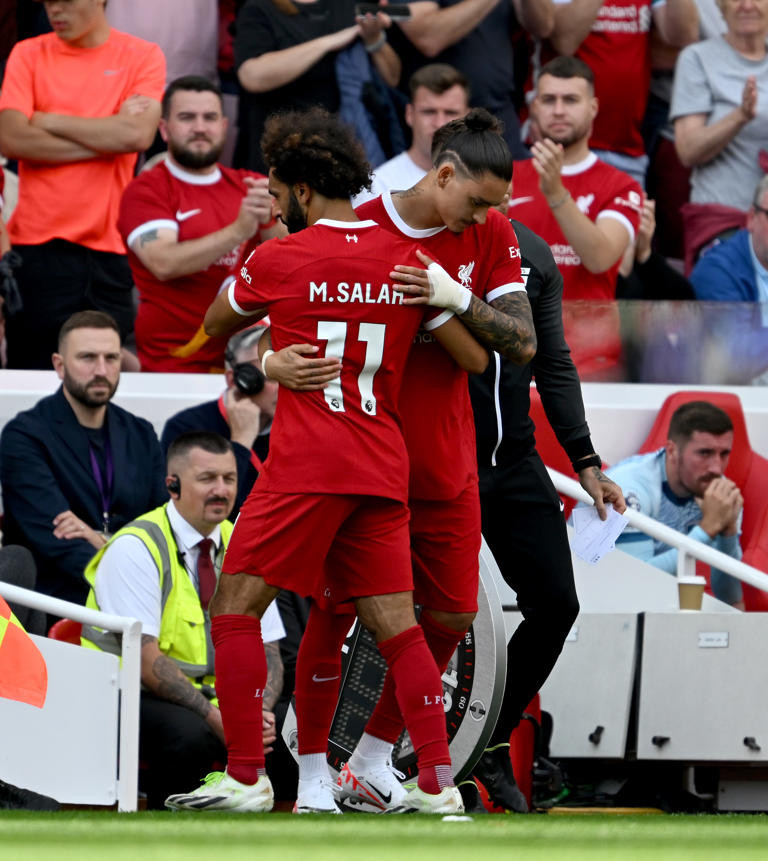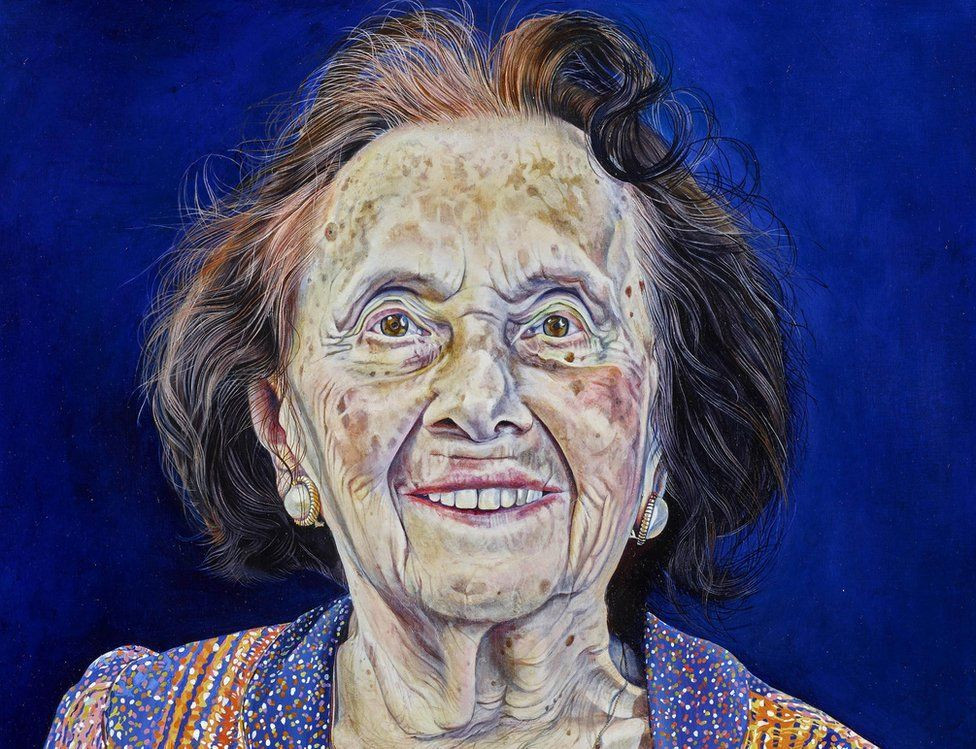For 50 years, the Edmonton Heritage Festival has tried to provide a respite for the time-honoured traditions of cultures over the momentary machinations of political actors. The war in Gaza. The destruction of Mariupol. A mob at the U.S. Capitol. Tension in the South China Sea. The Houthis. A military takeover in Myanmar. Populism. Protests. Assassinations both attempted and achieved.
In a world aflame with strife, hate and destabilization of the established order, what chance does a quaint concept like multiculturalism have in Canada, especially when such conflicts are increasingly spilling over into our daily discourse and public spaces?
For 50 years, the Edmonton Heritage Festival has tried to provide an answer to that, offering an annual respite for the time-honoured traditions of cultures over the momentary machinations of political actors.
And the public has overwhelmingly responded to that idea, turning the festival into “the largest three-day multicultural celebration in the world” and earning a special designation from UNESCO. Crowds in the hundreds of thousands attend every August long weekend for food, art and performance, drawn by the unique opportunity to, say, watch a K-pop show eating Romanian meat rolls and drinking west African bissap while carrying a Peruvian bag stuffed with jars of Jamaican spices.
A Culture-Only Mandate
Key to this experience is the festival’s aura of authenticity. The 70-some pavilions are not official promotions from foreign governments. Instead they are run by local cultural societies who use the three-day event not just to showcase their flavours and traditions, but as crucial fundraisers that sustain their programs and services the other 362 days of the year.
(It is also a major fundraiser for the Edmonton Food Bank, whose clientele is disproportionately BIPOC).
Were he still alive, it would merit an episode in one of Anthony Bourdain’s documentaries.
Yet as the festival has broadened in both reverence and relevance — especially for a city where more than four in 10 residents are now a visible minority — so have worries about how its foundations will manage growth pressures and geopolitical upheaval.
This has long been a tension embedded within the dynamics of Canadian pluralism, and while the heritage festival has successfully held it at bay for five decades, the stiffest tests seem to lie ahead.
Already, for the festival, there are cracks forming, and some involved with the event privately say they are worried.
“We want to make sure we all understand that it is about culture, and that culture is not defined by borders,” festival president Bruce Hogle told Postmedia in an interview last month.
“We’re not looking at governments. Generally, I would say all the pavilions want to keep it focused on that. Is there always a few bad apples in a group? Yeah, but overall, all pavilions want to showcase who they are and what is unique about themselves. This is what makes Canada so great.”
A Culture-Politics Collision Course?
None of this is to say the festival hasn’t faced other seemingly dire challenges at times in its history, dating back to its humble beginnings in the mid-1970s.
There were small crowds initially and the participation of only a handful of cultural groups.
Years later, in the early 2000s, a move to a ticketing system for food and other unpopular changes resulted in the withdrawal of 16 pavilions and a big financial deficit. At one point, there was also a controversy over the treatment of a short-lived “Canada” pavilion.
Yet up until last year, the festival has not seemed to face significant problems among or within participating cultural groups — at least none that became public.
Perhaps the world was a generally more stable, or less violent, place during those decades.
Perhaps it was easier because certain cultural societies had not yet developed in Edmonton, or chose to stay away from the festival in the belief they wouldn’t be entirely welcome. For a while, this might have included groups whose connected countries were ruled by Communist dictatorships that Canada opposed. Russia, for example, didn’t have a pavilion until 2007.
And yet even during this supposedly more “stable” period of world order, there were a number of dangerous and bloody international conflicts, including among counties and groups that were represented at the festival — China and Taiwan, India and Pakistan, Ethiopia and Eritrea, Israel and Iran, Balkan countries, Central American countries, and so on.
That such strife did not trickle onto festival grounds seems a considerable achievement given that any fences erected between culture and politics have proven to be rather rickety.
Even the heritage festival with its culture-only mandate has been forced to acknowledge the impossibility of complete separation from government and history. Which is why groups with historical tensions tend to see their respective pavilions placed well apart from each other, whether it be Serbia, Croatia and Bosnia and Herzegovina, or China and the relatively new Uyghur tent.
The Russian Pavilion Controversy
Whatever the reasons for the festival’s relative peace over the years, the volunteer board was hit with an unprecedented shock wave in 2023 stemming from Russia’s war in Ukraine.
After voluntarily pulling out of the festival in 2022, the local Russian Heritage Cultural Development Association filed an application to return with a pavilion the following year.
The Edmonton branch of the Ukrainian Cultural Congress (UCC) had other ideas, demanding the Russian group’s participation be prevented as long as the war raged. This was the right thing to do as sign of respect to suffering Ukrainians in Europe and the anguish of loved ones in the Edmonton area, the congress told the festival in an open letter.
However, the preamble to the letter was far more jarring, invoking not just a need for sympathy but laying out a prosecutorial-style case against the Russians based on notions of cultural justice or even punishment.
It cut straight across what had previously been a no-go zone for the festival, asserting that much of Russian culture had been appropriated from non-Russian people, that Russian artistic leaders often held contemptuous attitudes towards Ukrainians and others, and that Russian culture had been used a propaganda weapon to promote the country as a peaceful world power.
Moreover, the letter implied that the Russian government’s aim seemed to be to completely delegitimize Ukraine — culture and all — through a war of “genocidal aggression.” As such, the UCC appeared to be arguing for a restoration of balance, that since Russia was waging a literal war on culture, it would be unseemly to provide spaces for Russian culture to be celebrated.
Instead of rejecting the demand, beleaguered festival leaders first tried to find a resolution — even holding an informal meeting with both sides — but when that failed, board members granted the request to have the Russian pavilion withdrawn.
The messaging around that decision did not refer or give acknowledgment to any of the UCC’s arguments. Rather, the festival cited vague “security concerns” that have never been publicly disclosed, though insiders suggest that emotions were running high enough that festival leaders just didn’t want to risk some sort of incident. That, plus there was a dispute over covering the costs of additional security, sources told Postmedia.
Reaction was swift. Critics blasted both the Ukrainian congress and festival organizers for crossing a previously uncrossable line, and some even called for a boycott.
Regardless of the rationale, they said, the effect of the ruling was to punish local Canadians who happened to be of Russian descent for the brutal actions of Vladimir Putin’s government 7,500 km away. That seemed unfair, especially when the festival had never demanded such misplaced accountability from other local cultural groups, they added.
Yaroslav Broda, past president with the Edmonton branch of the UCC and a current board member, said the organization did make a distinction between local Russian-Canadians and the Russian government.
He said the UCC came to the festival’s meeting with the Russian association looking for two main concessions that, if granted, might have led to a better outcome.
One was for the Russian pavilion to stop selling T-shirts and other items with political and military symbols, including those bearing the letters of organizations from days gone by such as “CCCP” and “KGB.”
The second was for the local Russian group to make some sort of statement against the war in Ukraine.
“Don’t get me wrong, there are definitely individual people, Russian-Canadians, who have spoken out against the war, volunteered, donated, come to demonstrations, whatever it may be,” Broda said. “But that’s not the outward vocal sentiment.
“The Russian community in general and Russian pavilion organizers have not addressed the war in Ukraine in any way. It was radio silence.”
Others with inside knowledge of the meeting told Postmedia the idea of a statement was brought up several times, but the Russian group refused to engage on that point, insisting that the festival stick to its mandate of keeping politics out of a cultural showcase. One source, who requested anonymity, suggested the Russian delegation left the impression that they did not understand or appreciate the scale of destruction occurring in Ukraine.
“There was definitely criticism,” Broda said of the UCC’s stance. “It’s a lot like sport, where people are like, ‘Politics need to stay out of sport. Sport is separate.’ But in reality, it’s not. You can’t segregate things into silos like that.
“The current one is we have to keep culture and politics separate. Well when the stated purpose of the war is to wipe out language and culture and people, culture is at the heart of the issue.”
Asked why the UCC’s call for Russian exclusion was justified when other cultural groups had resisted similar demands — Israel and Palestine, the Uyghurs in relation to China, etc. — Broda initially struggled to answer. But he eventually suggested that the war in Ukraine was at a much larger scale than those other conflicts and was a more clear-cut case of good versus evil.
The Russian cultural association would not agree to an interview, instead sending a brief email explaining the group’s decision not to reapply for a pavilion in 2024.
“No matter what we did, the organizers always found a way to block our participation. We just didn’t want to deal with this again, we are all volunteers and it takes too much time and effort, with no results,” the email read.
However, another source with knowledge of the situation provided Postmedia with more detailed insight into the dynamics around the Russian heritage group.
The source said pavilion organizers were agreeable to end sales of the political and military paraphernalia, strangely popular items with festivalgoers in the past.
But as for the idea of a public statement against the war, the insider said, that wasn’t an option because many Russian Canadians have legitimate fears that loved ones in Russia might face reprisals. Silence shouldn’t be conflated with consent, they said.
On that front, the source also indicated that there is a misbelief that the local Russian community is highly organized and cohesive with a strong cadre of leaders, when in fact the opposite may be closer to the truth.
The implication there, essentially, is that among those who count themselves as part of the diaspora, some may see value in the war, some may disagree with the way it has been waged, and even more take issue with all of it — but getting a statement either way wouldn’t be particularly representative of a community that isn’t particularly united.
Most just want to be known as “proud Canadians,” which festival leaders seemed to forget, the source said.
“They are not asking Israel or Palestine (organizers) to sign a letter,” they said.
“They made a short-term decision with long-term consequences.”
In that vein, some festivalgoers have openly wondered why event executives rejected an alternative path: if the festival was facing “security concerns” from two hostile groups, shouldn’t both have been kicked out?
The festival has not provided a clear answer to that, leading to accusations the event succumbed to the thing it vowed not to do — play politics. While it may have been easy to push out the relatively small Russian community, critics suggested, the notion of cancelling the Ukraine pavilion was far riskier in a city with such a large and influential Ukrainian-Canadian population.
For what it’s worth, festival leaders said this week that they were “open and excited” to have a Russian presence return in the future.
Yet considerable doubt surrounds the when and how of that possibility, with the Russian delegation showing no interest in rushing back, and no change in stance from the UCC.
Broda, in fact, confirmed that had the Russian heritage association reapplied this year, the Ukrainian congress would have maintained its opposition.
The Israel-Palestine Conflict Adds Another Layer
Despite that mess, and a forced temporary relocation to the exhibition grounds, the heritage festival was still considered a success in 2023 with an estimated crowd of 300,000 people attending over the long weekend.
Organizers hoped that Ukraine-Russia controversy was just a one-time headache.
But then Oct. 7, 2023, happened in which Hamas carried out a large-scale terrorist attack on Israeli civilians. That, in turn, prompted Israel’s government to strike at Gaza with an extremely destructive and highly criticized military response that has continued into the summer of 2024.
The conflict has provoked a polarizing, visceral reaction through much of Canada, including Edmonton, spilling over into different venues.
Among frequent protests, the dismantling of a pro-Palestinian encampment at the University of Alberta in May caused considerable resentment and led to further demonstrations.
More alarmingly, there have been calls for boycotts, and increased reports of threats, harassment and violence, including a big rise in antisemitic behaviour.
As one example, Israeli restaurant chain Vish, which provides the food for the Israel pavilion at the festival, has announced plans to close its Edmonton location this September due to a political boycott.
When it comes to the festival itself, the good news is that tents representing Israel and Palestine will both be back, and, unlike the UCC, neither organizing group has requested the removal of the other.
“Despite the conflict between Israel and Palestine, the pavilion organizers are really focused on celebrating their cultures,” said Hogle, festival association president. “We haven’t experienced any of the same security threats as we have last year regarding any other pavilions.”
That said, there is no question of a heightened tension this year.
In the lead-up to the event, the heritage festival’s social media channels have started to see comments creep in calling for the Israel pavilion to be removed, and calls of hypocrisy stemming from last year’s move to ban the Russian tent.
Advocacy group Free Palestine Edmonton has announced plans for a three-day protest over the August weekend, including a “human chain” one day that will be in the vicinity of festival grounds.
Privately, some insiders say they are more nervous than usual about how all of this might play out. And as of the time this article’s publication, organizers for the Palestine and Israel pavilions had reportedly not found a way to talk to each other about potential problems.
Hogle said the festival has security plans in place with Edmonton police to deal with any protests or disruptions, though details are being kept private.
The Israel pavilion, too, has made its own preparations, again hiring extra security while training volunteers on how to handle hostile encounters.
“We always have additional security on site that we commission ourselves,” said Stacey Leavitt-Wright, CEO of the Jewish Federation of Edmonton.
“The Jewish community, every event and program we do, every synagogue service, security is top of mind and incorporated into the execution of that event. The heritage festival is no different.”
In some ways, she said, it’s perhaps more important than ever this year for there to be an Israel pavilion at the festival. At the same time, she lamented the extra efforts required to make it happen because of an inability or unwillingness among some to separate politics and culture.
“Every year, our motivation for participation is to share the joy and culture. It’s not political. There are times and places for that, but this isn’t it. It’s something we tell visitors, that if they want to engage in those conversations, that’s not what we’re here for,” Leavitt-Wright said.
“Holding Canadian Jews responsible for actions of Israeli government is antisemitic. I’m a proud Canadian, born and bred. I also have a very strong connection to Israel, and there should be no shame in that and to be able to express that and share that with people.”
One would expect the Palestine pavilion has also prepared security protocols and specific messaging, though organizers did not respond to Postmedia’s request for an interview.
Can The Festival Weather The Storm?
Festival eyes may also be keeping tabs on other pavilions this year, including Eritrea.
Just over a year ago, clashes broke out at an event celebrating the east African country purportedly between event participants and another crowd demonstrating against the anti-democratic policies of the current Eritrean government.
Hundreds of men, some dressed in orange, some dressed in blue, took part in the brawl, which ended up sending 11 people to hospital and prompting police to proclaim the Riot Act in the city for the first time in 24 years. Similar riots between opposing groups within the Eritrean community have taken place elsewhere in Canada.
In Edmonton’s case, there have been no further reported incidents in the last year. Police have been investigating the August 2023 mayhem, but there has so far been no word on charges, no complete accounting of what happened, and no assessment on the risk of further violence.
Requests to speak with local Eritrean community leaders went unanswered.
As of now, festival leaders say it is business as usual for them, and are expecting another big crowd this year with kebabs on the barbecue, dancers on stage, cold beverages in hand and good weather in the forecast.
For festival devotees, there is hope the event can keep fidelity with that vision long term, that the gathering storm clouds are nothing more than the regular ebbs and flows that come with the messiness of multiculturalism in an era of high immigration.
Many, however, seem worried that something has already splintered beyond full repair, in part stemming from the removal of the Russian pavilion, and in part due to mounting geopolitical pressures exacerbated by social media-fomented outrage.
“What I see is people getting much more entrenched in their own ideas and not communicating as much. And I think it has a lot to do with social media, especially within a diaspora,” said Sandeep Agrawal, a professor in the University of Alberta’s school of urban and regional planning, whose research delves into multiculturalism and immigration.
“What they are getting is information from outside and if they belong to a certain segment of that diaspora, then that’s what they follow. It’s leading to more divisions within society and it’s manifesting at the heritage festival and in other forms.”
As such tensions threaten to eat away at the established order of multiculturalism, the concern is that events such as the festival will be forced into increasingly uncomfortable — and perhaps existential — choices.
One direction potentially leads to more pavilions banned, more voluntary pullouts, enhanced security, entry tickets and metal detectors.
Another leads to festival staff pushed into the ugly role of culture police, checking every poster, sign and souvenir in every pavilion for signs of political messaging — turning what is supposed to be John Lennon’s Imagine into George Orwell’s 1984.
This year’s event thus stands as an important test of the path forward for Canadian pluralism, but it undoubtedly won’t be the last.
“It’s not holding your community members accountable for those actions (of foreign governments). It’s checking in and seeing how they are doing, and frankly having a conversation with them and becoming more informed about geopolitics and everything else that is going on,” Leavitt-Wright said.
“It’s also coming out to festivals like this. Of the 10,000 interactions we had last year, 99.9 per cent of them were positive. We need to continue to show up and engage with people and learn from each other.”




